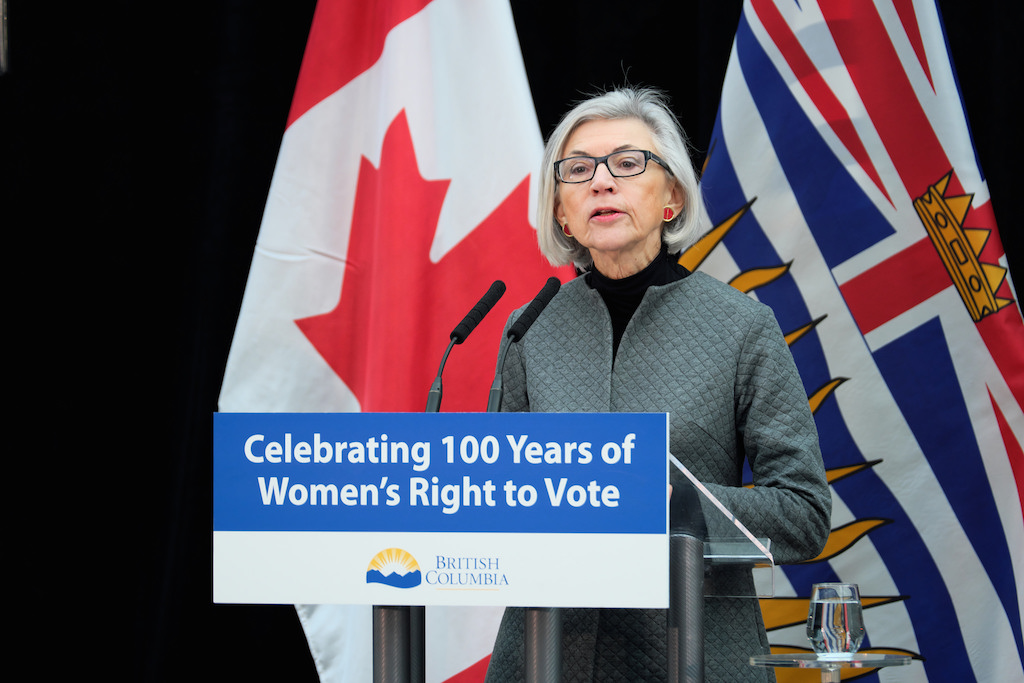With Parliament looking to summer recess, it is a good time to reflect on what went wrong, and what to like.
Maxime Bernier would be leader of the Conservatives today if he had not promised to dismantle the supply management system that provides income security for farm communities. It was a surprising misstep since he had always supported supply management in Quebec where he gets elected easily in his home region, the Beauce.
Rona Ambrose helped people forget the worst about the Harper Conservative government, renewed her party, and distinguished herself as interim leader of the Conservatives. She was their obvious choice for leader. Somehow a confused party managed to exclude their best bet to lead it into the 2019 election from being in the leadership race. Instead they chose family-values candidate — “Stephen Harper with a smile” — Andrew Scheer. Ouch.
Conservative MP Michael Chong, Liberal MP Scott Simms, and NDP MP Kennedy Stewart want parliamentary committee positions to be filled by secret ballot. The three have done a book together proposing various democratic reforms to curb the powers the prime minister and party leaders wield over elected members of Parliament. Their work honours the place and the people who elected them.
The first task of a government is to put the right people in the right place. The Liberals have been so slow to appoint judges that the “justice delayed is justice denied” rule of the Supreme Court is being increasingly invoked to overturn criminal judgements because short-staffed courts took too long to convict.
Before naming a Commissioner of Official Languages, the government is required by legislation establishing the post to consult with leaders of recognized opposition parties. Apparently nobody in the government read the legislation. The Liberals named a candidate who was forced to withdraw her name when it became apparent the government had bungled the nomination process.
The list of unfilled offices is huge. The Liberals plan to make a batch of appointments all at once, when Parliament is no longer sitting. This contrasts with pledges to provide open and transparent government.
Democracy Watch is petitioning the Liberal government to “Stop Political Lap Dog Appointments.” Instead of having cabinet ministers manage appointments, Democracy Watch wants an independent process, with appointments based on merit, starting with judges and the nine officers of Parliament.
In clear conflict of interest, the Trudeau government is under investigation by the ethics commissioner it plans to replace.
The concentration of power in the Prime Minister’s Office (PMO) creates a general confusion in Ottawa.
The government names a new minister for democratic reform, and then closes down the democratic reform process.
The prime minister pledges to make decision-making more open and to make Indigenous peoples part of the process.
Except the Kinder Morgan pipeline is approved, forcing First Nations to go to court to have Supreme Court decisions giving them approval over resource projects on Aboriginal lands respected.
Closing tax loopholes that benefit the wealthy does not get done. The Cook Islands get to be a new tax haven for Canadian companies.
Asked about why tax injustices were not addressed in spring budget, the PMO confides it is concerned about what changes Trump is going to make to the U.S. tax code.
The Liberals planned to work with Hillary Clinton, and the election of Trump has pulled them severely off course. A form of panic has set in.
Bringing in Brian Mulroney — the most disrespected prime minister in recent Canadian history — to advise the government is a novel strategy.
If the idea is to build public support for measures that need to be taken to protect Canadians from a rogue regime in Washington, why consult someone who convinced himself this would never happen?
So many Liberal missteps in government suggest the main PMO operators are inept.
After serving 25 years as a Supreme Court judge, 18 of them as Chief Justice, Beverley McLachlin announced she will be stepping down in December. Her achievements stand up to close examination.
In 2008 the McLachlin-led court overturned years of Supreme Court anti-labour decisions when it recognized the right to free collective bargaining as a democratic right under freedom of association. In 2015 the Supreme Court recognized the right to strike.
Under her leadership, the Supreme Court turned back Harper Conservative legislation on a number of issues, such as prostitution, the right to die with dignity, and minimum jail sentences for convicted felons.
When Harper took a public shot at her, she handled him with ease.
The McLachlin court broadened standards for recognizing Aboriginal rights: it is a requirement for approval of natural resource projects to get band consent if the land has been used traditionally by Aboriginals.
As Chief Justice, McLachlin spoke out on discrimination against women in law circles, and pointed to needed reforms.
At last count Beverley McLachlin had received 31 honorary university degrees. She has been a Chief Justice capable of shepherding, and writing heroic decisions. What more could be asked of her eventual successor?
Duncan Cameron is former president of rabble.ca and writes a weekly column on politics and current affairs.
Photo: BC Gov Photos/flickr




